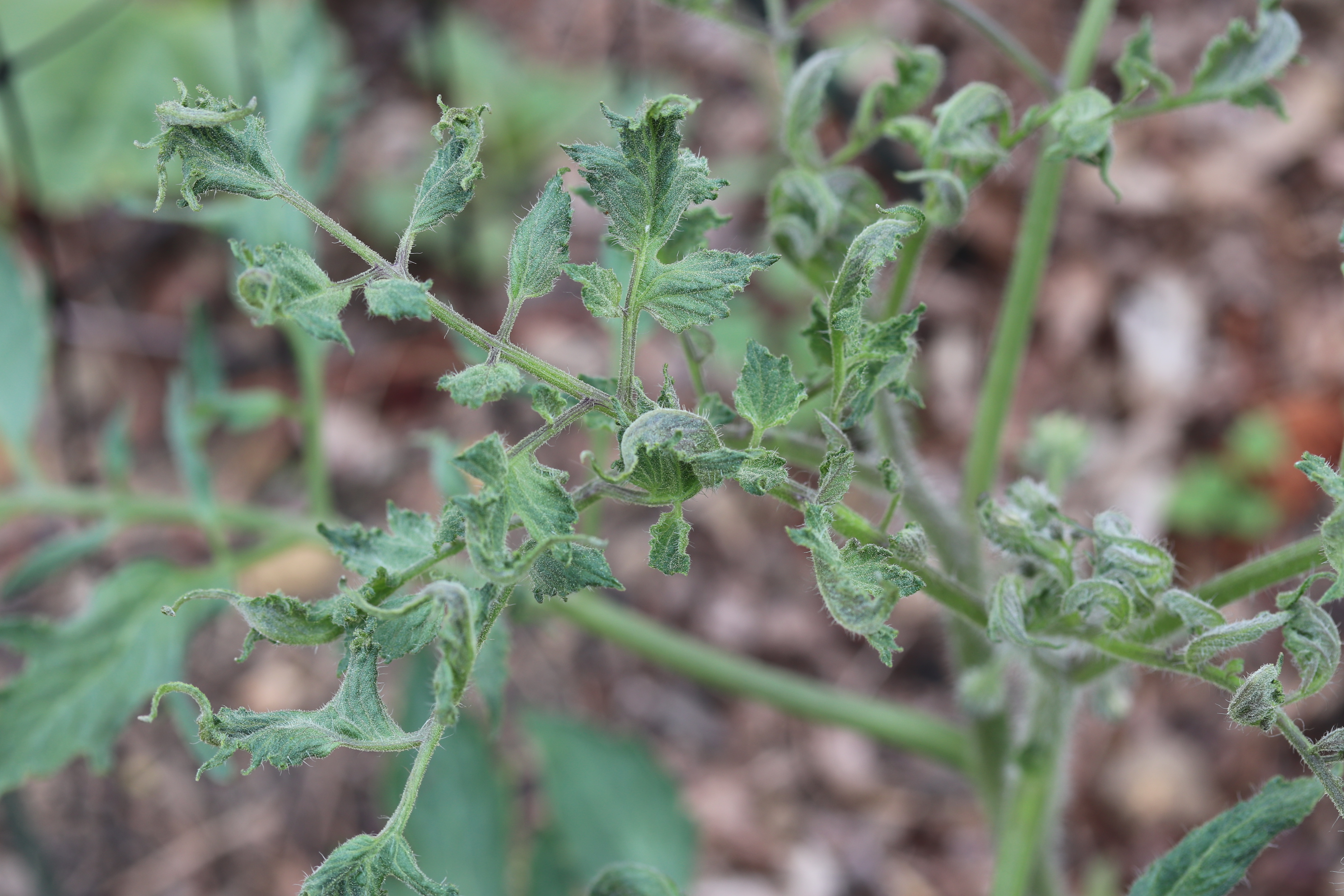Herbicide Damage in the Garden
go.ncsu.edu/readext?707602
en Español / em Português
El inglés es el idioma de control de esta página. En la medida en que haya algún conflicto entre la traducción al inglés y la traducción, el inglés prevalece.
Al hacer clic en el enlace de traducción se activa un servicio de traducción gratuito para convertir la página al español. Al igual que con cualquier traducción por Internet, la conversión no es sensible al contexto y puede que no traduzca el texto en su significado original. NC State Extension no garantiza la exactitud del texto traducido. Por favor, tenga en cuenta que algunas aplicaciones y/o servicios pueden no funcionar como se espera cuando se traducen.
Português
Inglês é o idioma de controle desta página. Na medida que haja algum conflito entre o texto original em Inglês e a tradução, o Inglês prevalece.
Ao clicar no link de tradução, um serviço gratuito de tradução será ativado para converter a página para o Português. Como em qualquer tradução pela internet, a conversão não é sensivel ao contexto e pode não ocorrer a tradução para o significado orginal. O serviço de Extensão da Carolina do Norte (NC State Extension) não garante a exatidão do texto traduzido. Por favor, observe que algumas funções ou serviços podem não funcionar como esperado após a tradução.
English
English is the controlling language of this page. To the extent there is any conflict between the English text and the translation, English controls.
Clicking on the translation link activates a free translation service to convert the page to Spanish. As with any Internet translation, the conversion is not context-sensitive and may not translate the text to its original meaning. NC State Extension does not guarantee the accuracy of the translated text. Please note that some applications and/or services may not function as expected when translated.
Collapse ▲Several home gardeners have reported damage to vegetable and flower crops after applying manure, compost, or hay to the soil. The symptoms reported include poor seed germination; death of young plants; twisted, cupped, and elongated leaves; misshapen fruit; and reduced yields. These symptoms can be caused by many factors, including diseases, insects, and herbicide drift. However, in some cases, the likely source of these crop injuries is the presence of certain herbicides in the manure, compost, hay, or grass clippings that were added to the garden soil.

his tomato plant has the classic look of being affected by herbicide carryover. (Credit Dr. Joe Neal, NC State University, Professor of Weed Science and Extension Specialist)
The herbicides of concern are aminopyralid, clopyralid, and picloram. These herbicides are from a class known as pyridine carboxylic acids. They are registered for application to pasture, grain crops, residential lawns, commercial turf, and certain vegetables. Some of the common trade names are GrazonNext, Grazon P+D, Confront, and Lontrel, just to name a few. They are used to control a wide variety of broadleaf weeds, including toxic plants that can sicken or kill grazing animals.
These herbicides don’t rapidly degrade when applied to pastures and hay fields. They pass unaffected through the animal’s digestive tract and are excreted in the manure. Even after composting, these herbicides can remain at active levels in the compost.
Pyridine carboxylic acids can remain active in hay, grass clippings, piles of manure, and compost for a long time. These herbicides eventually break down through exposure to sunlight, soil microbes, and heat, but in some cases, the complete breakdown can take several years. However, under ideal conditions these herbicides can be deactivated in as few as 30 days.
When mulches, manures, or composts with residual herbicide activity are applied to gardens, damage can occur. Many crops can be affected, including beans, carrots, dahlias, eggplant, grapes, lettuce, peas, peppers, potatoes, sunflowers, and tomatoes.
The label on every herbicide contains detailed instructions, including animal feeding restrictions and safe use of manure or crop residues. When used as directed on the labels, these herbicides should not cause any problems. The manures can safely be applied to grass pastures and hayfields.
Problems arise when the hay, manure, and compost from treated areas are sold or given to others who have no knowledge of the herbicide residues. Animal manures and composts are excellent sources of nutrients and organic matter for growing food crops and improving soil health. However, if you’re uncertain about the herbicide use associated with an organic amendment, you can perform a simple test to see if these herbicides are present. This simple test is called a pot bioassay that involves growing beans or peas, which are very sensitive to the presence of these herbicides.
First, take a number of random, representative samples (small shovelfuls) from throughout the pile of aged manure or compost, being sure to get deep inside the pile. Mix thoroughly. If there are separate sources of manure or compost, conduct individual assays for each. Prepare three to six small (4- to 5-inch) pots with a 1:1 mix of the manure or compost with a commercial potting mix containing fertilizer. Fill several control pots with only the commercial potting mix. Put saucers underneath each pot, or position the pots far enough apart so that water running out of the bottom will not reach another pot. Plant three pea or bean seeds in each pot, water, and let them grow for two to three weeks. There should be at least three sets of true leaves on the peas or beans.
If the plants in the control pots grow normally and the ones in the pots with manure or compost do not, you can assume the manure or compost is contaminated with a herbicide that will adversely affect sensitive plants. If they all grow normally, it would be reasonable to assume that the manure or compost is fine.
If you suspect you’ve had herbicide carryover in your garden, I would like to know about it. Just call the Caldwell Extension Center at 828-757-1290 or send me an email at seth_nagy@ncsu.edu.




